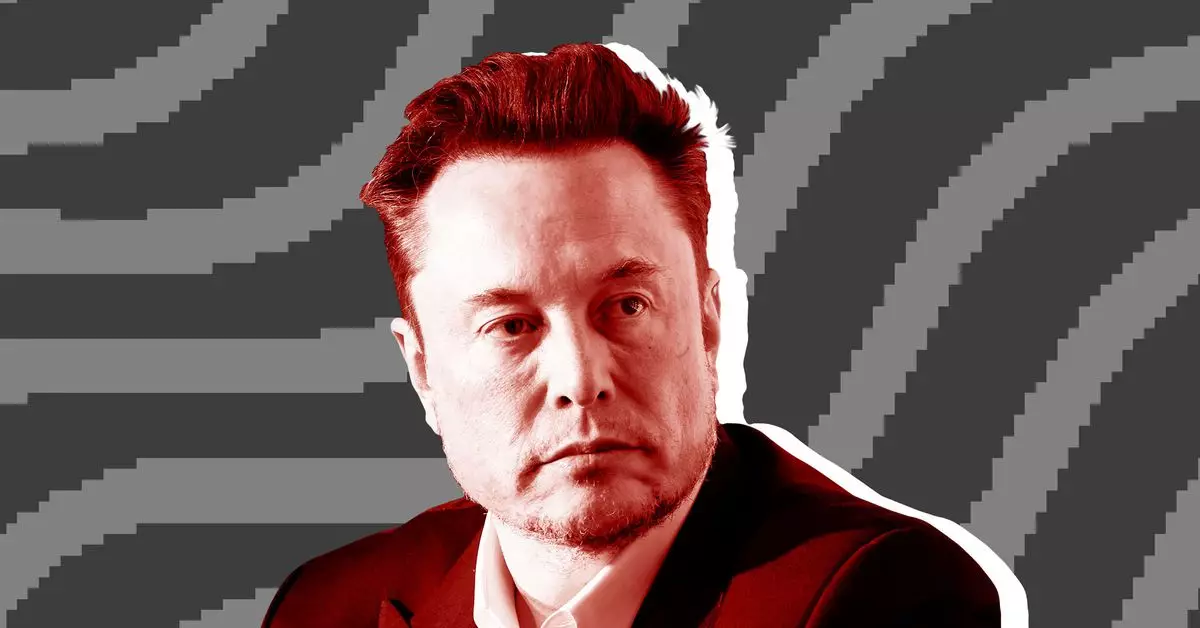In a move that has captured headlines and ignited discussions across political and technological spheres, President-elect Donald Trump has appointed Elon Musk and Vivek Ramaswamy to lead a newly established Department of Government Efficiency, affectionately dubbed DOGE. This initiative is designed to overhaul bureaucracy and inefficiency within the federal government, drawing on the distinct backgrounds of its leaders. Musk is renowned for his innovative approaches in the tech world, while Ramaswamy has made his mark in the business sector. This unlikely but high-profile duo signals a shift in how governmental operations could be approached, promising to revolutionize the federal landscape.
Trump’s vision is explicitly clear in his stated goals: dismantling cumbersome governmental structures, eliminating superfluous regulations, and curbing wasteful spending. The proclamation is bold, suggesting that significant reform is not merely a possibility but an expectation. This initiative resonates with a long-standing desire among conservative factions to reform government spending and to ‘drain the swamp’ of inefficiency. By announcing this leadership team via Truth Social, Trump seems to imply that the very structure of government might also benefit from traditional business principles—an entrepreneurial mindset that Musk particularly embodies.
The ambitions outlined for the Department of Government Efficiency are staggering. Musk has suggested potential cuts totaling as much as $2 trillion. This figure raises eyebrows, with many critics, including financial analysts from The Washington Post, categorizing such cuts as “virtually impossible” without significant changes to critical areas like the defense sector or social entitlements. The underlying complexity of these suggestions cannot be ignored; substantial cuts risk eroding essential services and could possibly lead to adverse economic impacts if not handled judiciously.
Musk is aware of the implications of his proposals, acknowledging that while short-term hardships may arise, the end goal is to ensure long-term efficiency and financial health for the government. Notably, the tone set by the leaders implies a transformative agenda that could shift priorities away from traditional government roles. In tapping into Musk’s tech-savvy background, the DOGE initiative seems poised to incorporate elements of cutting-edge technology and innovative practices into government operations, potentially reshaping what citizens expect from their institutions.
Another key aspect of this initiative is its emphasis on accountability; Trump has articulated a desire to make the government ‘answerable to the people.’ With a stated aim to eradicate the tyranny of waste and fraud, DOGE is positioned as an agent of change that could restore public trust in governmental processes. The assertion that the department will work “outside of Government” raises questions about its independence and effectiveness. Will DOGE truly function as an unbiased reform body, or will it merely reflect the political ambitions of its leaders?
By establishing a realistic deadline of July 4, 2026, for the completion of major reforms, DOGE has a clear timeline that invites scrutiny and evaluation from both allies and detractors alike. As the United States approaches its 250th anniversary of independence, the pressure is on for Musk and Ramaswamy to deliver tangible results that embody a smaller, more efficient government that citizens can rally behind.
The amalgamation of politics, technology, and personal brand within the context of this initiative cannot be understated. Following Trump’s election, Dogecoin, a cryptocurrency supported by Musk, witnessed a marked increase in value. The financial markets’ reaction underscores the inherent intertwining of personal branding and political capital—an aspect that both leaders have navigated with considerable skill. Critics argue, however, that relying on the reputation of public figures as vehicles for government reform risks outcomes that are more theatrical than substantive.
The establishment of the Department of Government Efficiency reflects a profound shift in the approach to federal governance—blending corporate strategies with public policy. As this ambitious experiment unfolds, all eyes will remain on Musk and Ramaswamy, scrutinizing their methods, achievements, and the inevitable challenges associated with pioneering a new governmental framework. Will DOGE become a beacon for future reforms, or will it be yet another chapter in the storied evolution of American bureaucracy? Only time will tell.


Leave a Reply